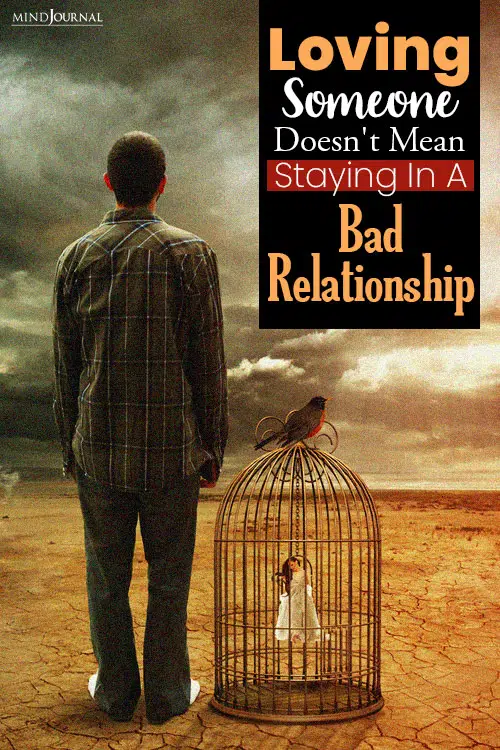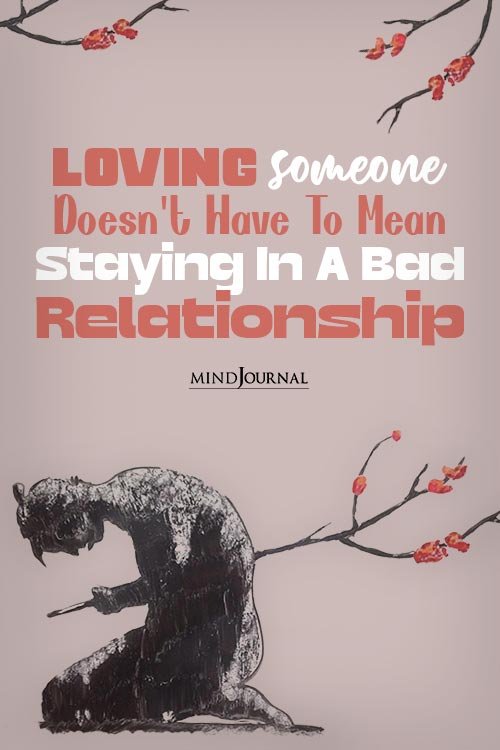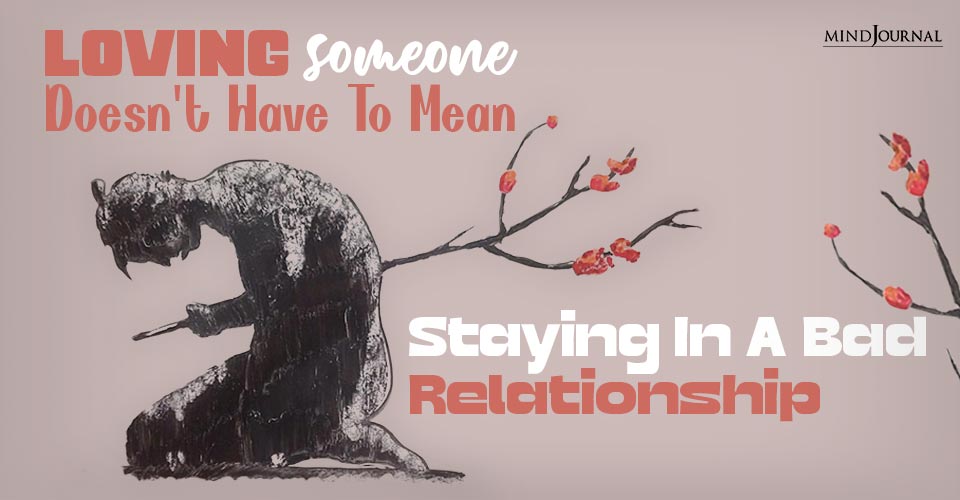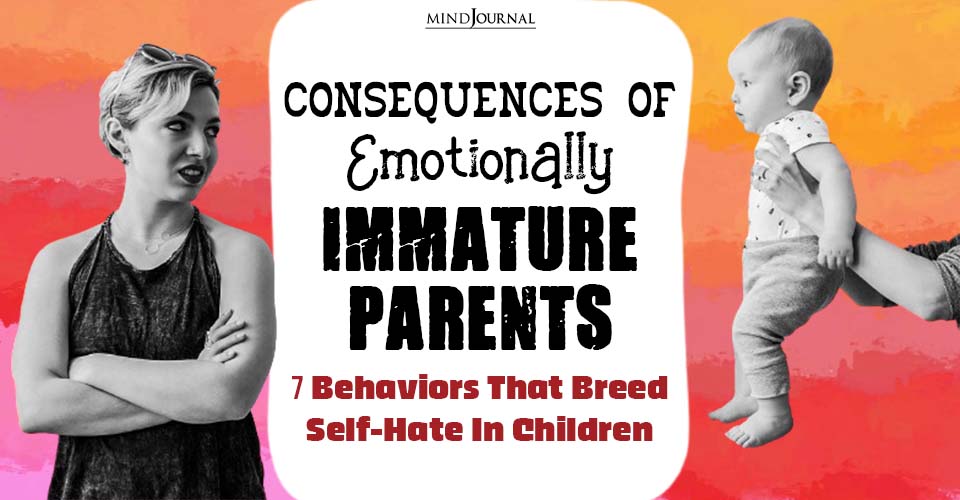Dating is hard, there are a lot of couples who aren’t quite as happy as they seem. But why? After so much disrespect, abuse, and selfishness why do some people still love their partner? Why do they stay in bad relationship? Is it because of their love for someone or lack of love for themselves?
KEY POINTS: Saying "but I love this person" and staying in the relationship may indicate a fear of changing the status quo. Maladaptive beliefs such as "this is as good as it gets" or "my partner can't survive without me" keep people stuck. Loving an abusive partner may be a sign of unhealed past trauma. The key to getting over love for an ill-fitting partner is to turn that love toward oneself.
Why Do We Get Stuck In Bad Relationships?
More often than not, it’s because of the common belief that if I love you, that means we should stay together. Of course, it’s always good to see if you can work things out when a relationship has gone off the rails. But if you’ve tried and tried and the relationship isn’t improving, it’s time to get real about what “But I love this person” really means.
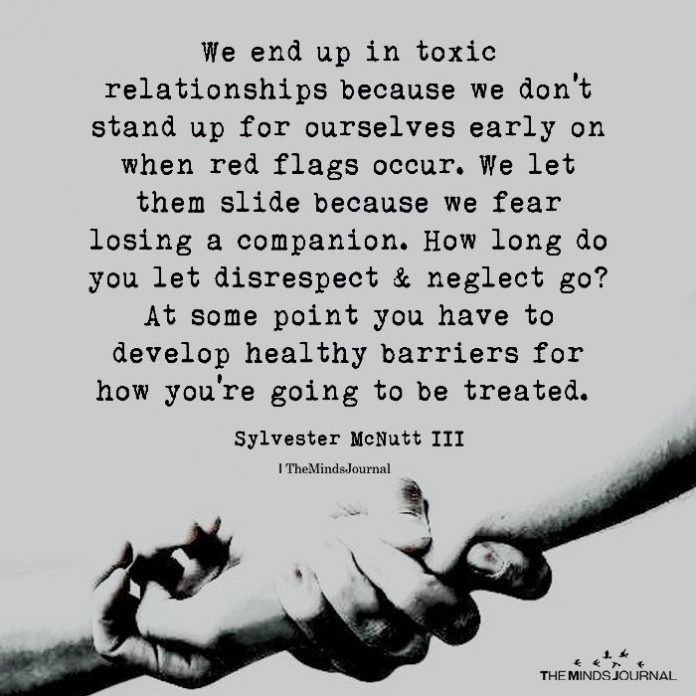
Why Do We Stay In Bad Relationships
It means we’re looking for an irrefutable excuse to maintain the status quo. Why? Because our hearts lie to us. They tell us, for example, that…
- We’ll never find someone else.
- Our partner can’t survive without us.
- We can’t survive without our partner.
- This relationship is as good as it gets.
All of those are feelings, not facts. And they point to the very dysfunction that may have drawn us into the relationship in the first place.
Related: 6 Toxic Relationship Habits Most People Think Are Normal
“But I Love This Person!”
Let’s take a look at the love you have for your partner. If your partner regularly causes you pain, how often do you get to experience love? If she’s moody, selfish, ill-behaved, disrespectful, or downright abusive toward you, how did you come to love her so much?
Treat your love of an abusive partner with suspicion. It may be a signpost pointing to past trauma. Love doesn’t hurt the giver or the recipient. It lifts them both up and makes life better. And although all good relationships require effort at times, healthy relationships are not a never-ending plod through the muck. They don’t involve repetitive, mysterious short cycles of good times and terrible times.
Love Yourself First
What many of us call love is an intense reaction to emotional wounding. Unhealed trauma draws us toward unfulfilling situations. Bad relationships remind us of other important relationships in which we didn’t get what we needed. We repeat harmful patterns not because we’re foolish, but because we want to fix them.
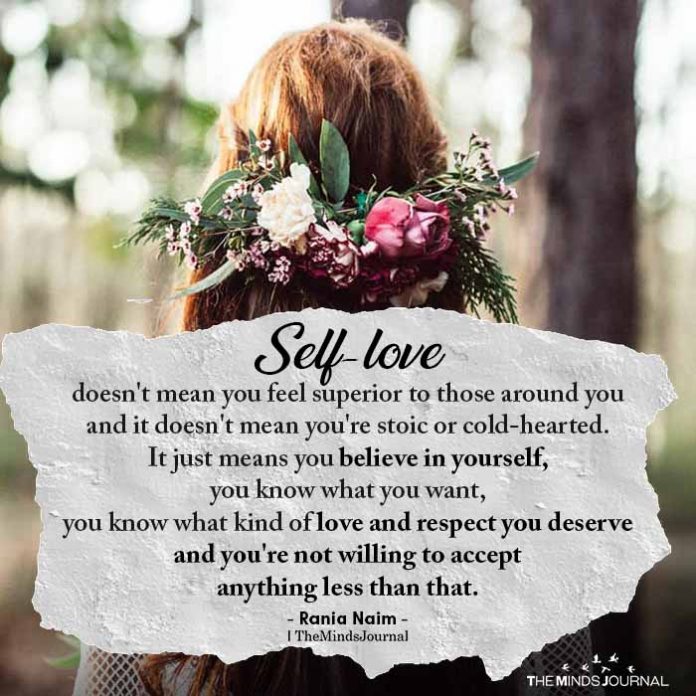
Instead of putting yourself through more pain, take the love you feel for an ill-fitting partner, and give it to yourself. Acknowledge any attachment trauma you may still be carrying, and treat it. Therapy can help.
Instead of remaining hopelessly attached to an inappropriate or abusive partner, you can become more attached to yourself. Self-love is not a consolation prize. It’s the prize.
Related: 5 Steps To Better Emotional Boundaries
The more you truly love and accept yourself, the better a partner you’ll attract and become for someone else. This sounds like an empty platitude, but that doesn’t make it less true.
It’s hard to leave any relationship because of the maladaptive beliefs mentioned above (e.g., “This is as good as it gets”). But if you’re frequently suffering because of your partner, things could be a lot better.
Once you’ve taken steps to improve the relationship — such as couples counseling, reading self-help books together, and practicing new behaviors — you’ve done what you can. There’s no need to stay aboard a sinking ship.
Love yourself first. And even if that means leaving a relationship that couldn’t be saved, you’ll finally know what real love feels like.
Written By: Tina Gilbertson, LPC Originally Appeared On: Psychology Today Republished with permission
